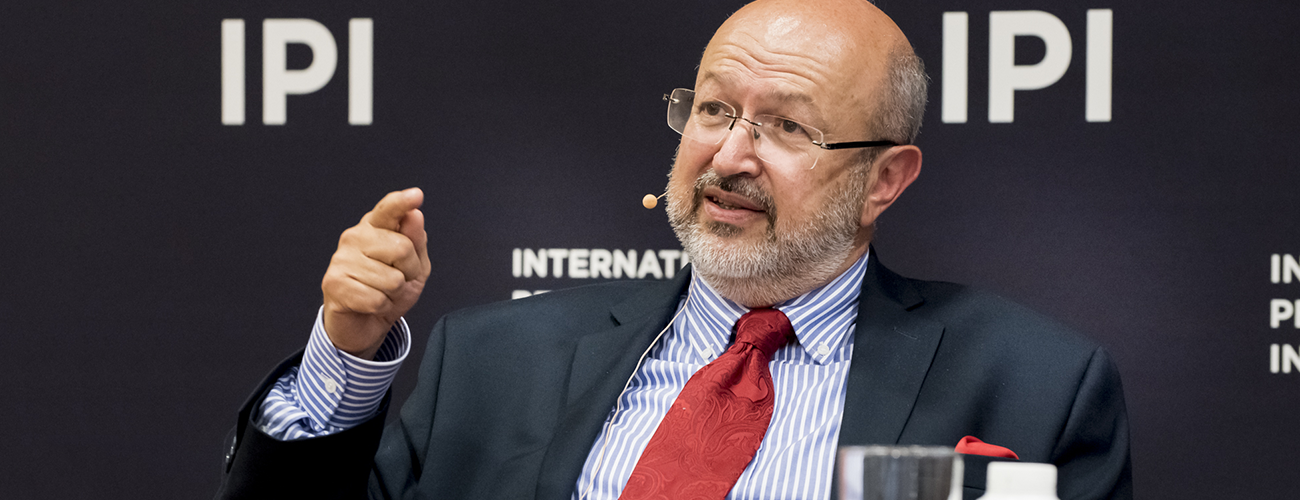Rising nationalist discourse and ethnic tensions have reinforced the need to prevent conflict grown from societal division. Such was the topic of a July 18th discussion on “conflict prevention through societal integration” at IPI, featuring OSCE High Commissioner on National Minorities, Ambassador Lamberto Zannier.
To address the inadequate response to the minority-based ethnic conflicts of the Yugoslav Wars, the post of High Commissioner on National Minorities was established in 1992 at the Helsinki Summit of the Conference for Security and Cooperation in Europe, now the Organization for Security and Cooperation in Europe (OSCE). The High Commissioner is mandated to alert the OSCE to risks, providing early warning and action where there is a potential for minority and ethnic-based tension. “My mandate is a conflict prevention mandate,” Mr. Zannier explained. “If you look around, interstate conflicts are increasingly rare, and conflicts tend to come from within split societies.”
Mr. Zannier said he views his mandate as “an old but new conflict prevention tool,” and identified two sides to his work. The first, “quiet diplomacy,” involves watching for instances of ethnic conflict and deciding which ones could develop in a dangerous direction, and then engaging with actors and constituencies that could help accordingly. The second centers on better informing the public on best practices and lessons learned, “communicating what are things that have worked in other places, and discouraging governments from making policy calls that would create friction,” he said.
In striving to make societies more peaceful and inclusive, Mr. Zannier stressed the centrality of integration. “If there are groups not well integrated, there is a high likelihood of seeing marginalization and radicalization and potentially violent extremism,” he explained. “One of our most effective tools is working on strengthening the resilience of society itself to crisis and conflict.”
Mr. Zannier admitted that working on integration within societies is not easy, as it touches on politically sensitive issues and is often seen as a departure from the “established order.”
“What we see today are extremely complex conflicts where it is difficult for the international community to intervene, but which are also very difficult to prevent,” he said. “Very rarely is there one thing that you can solve; there is always a gap between tensions and what you manage to do.”
In his work, the High Commissioner highlighted youth engagement and education as essential. “Equal opportunities for all starts from a balanced process of education, which does not cancel the identity of those who are different,” he said. Mr. Zannier further advocated for engaging “youth as an interested party… with long-term perspectives, interested in living in a society that is stable and prosperous where they have contribution.” He described various education- and inclusion-oriented programs for youth in minority communities under his tenure that “encourage them to be part of larger political discourse in this country.” “Young people understand that they need to overcome division of the past,” he said, “and take a future-oriented approach to address issues.”
The event was preceded by a showing of a video about the 2018 Max Van der Stoel Award given by Mr. Zannier and the Government of the Netherlands, highlighting a positive example of young people working for societal integration. The discussion was moderated by Adam Lupel, IPI’s Vice President.








